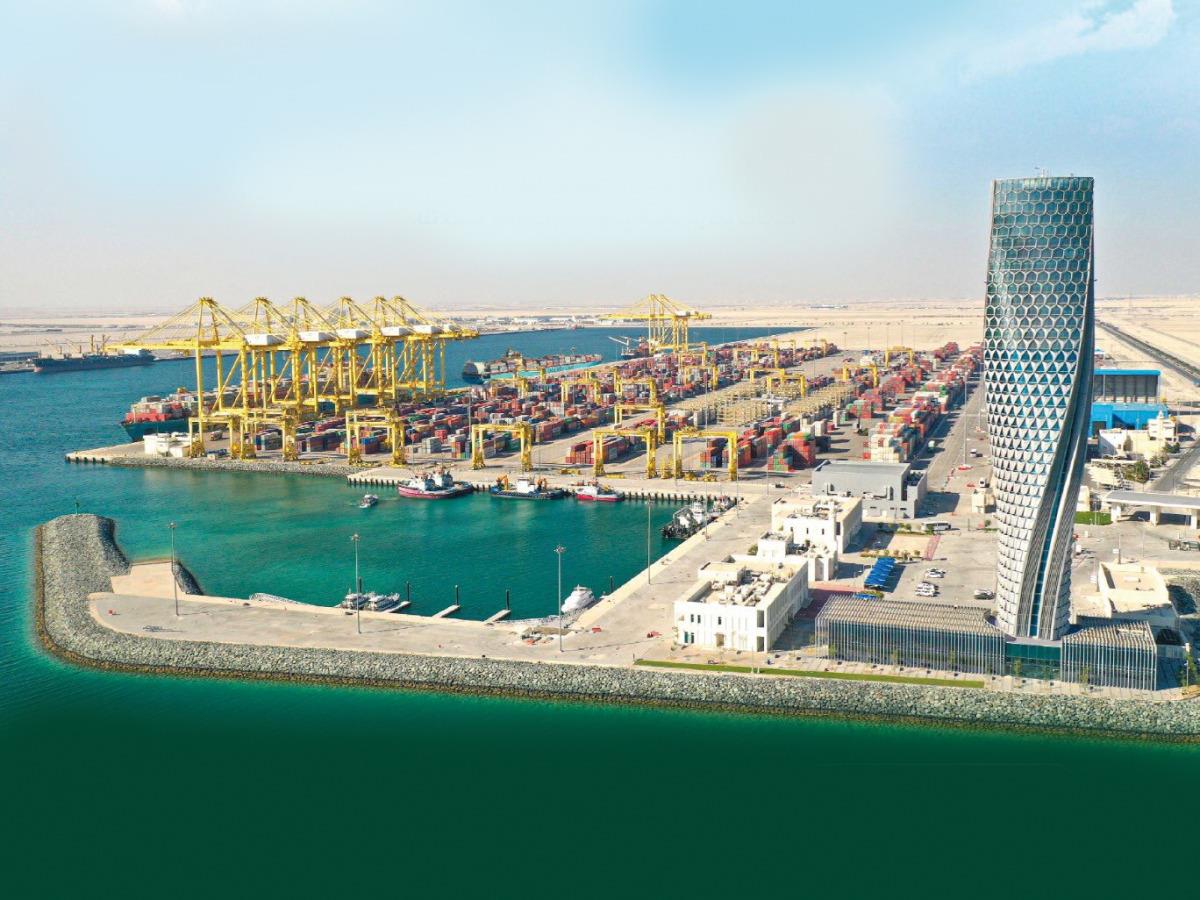Hamad Port Ranks First In Gulf, 11Th Globally In CPPI 2024
DOHA: Hamad Port, Qatar's main gateway to the world trade, has marked a new milestone by ranking first in the Gulf region for the first time and securing 11th place worldwide in the Container Port Performance Index (CPPI) 2024 issued by the World Bank in collaboration with S&P Global Market Intelligence.
In a post on its X platform yesterday, Mwani Qatar stated,“This distinguished ranking serves as global recognition of Hamad Port's exceptional operational efficiency and high performance, reinforcing Qatar's standing as a key regional hub for trade and logistics. It also highlights the port's critical role in driving the nation's economic growth, positioning it as a strategic link in global supply chains and a trusted transshipment hub in the region.”
Hamad Port's strong performance reflects the advanced infrastructure, modern technologies, and premium services it provides. The port's cutting-edge infrastructure, automated systems, and scalable design enable the rapid handling of diverse cargo types, including containers, bulk and general cargo, and Roll-on/Roll-off (RORO) operations.
Positioned strategically and supported by a rapidly expanding shipping network, it enables seamless and secure cargo flow and transshipment operations. This boosts customer experience, unlocks greater growth potential, and strengthens the country's role as a key commercial and logistics hub in the region.
The state-of-the-art infrastructure and advanced technologies at Hamad Port boost the efficiency of Qatar's maritime facilities and contribute to achieving the goals of Qatar National Vision 2030.
The 2024 edition of the index evaluated 403 container ports worldwide. It reported an overall decline in global port performance between 2020 and 2024 due to the Red Sea Crisis, challenges at the Panama Canal, and pandemic-related shocks. The report also highlighted uneven efficiency gains across regions and income groups.
The index bases its assessments on a wide range of data, with a primary focus on the time vessels require to complete loading and unloading operations, an essential measure of operational efficiency and a key factor in evaluating the resilience and reliability of global trade, the post further noted.
Qatar's ports (Hamad, Ruwais and Doha) play a pivotal role in strengthening the country's position on the global trade map, serving as the main maritime gateway for the entry and exit of goods and commodities.
Under the supervision of the Ministry of Transport, these ports have witnessed strategic development, making them among the most advanced port networks in the region, thanks to their modern infrastructure and integration with the country's free zones and logistics. The ports serve as an effective link between markets in Asia, the Middle East, Africa, Europe, and America, contributing to reducing cargo transit time and improving the efficiency of supply chains. Qatar's ports handled 126,481 TEUs (twenty-foot equivalent units) in August this year marking an 8 percent growth over the previous month.

Legal Disclaimer:
MENAFN provides the
information “as is” without warranty of any kind. We do not accept
any responsibility or liability for the accuracy, content, images,
videos, licenses, completeness, legality, or reliability of the information
contained in this article. If you have any complaints or copyright
issues related to this article, kindly contact the provider above.
Most popular stories
Market Research

- Forex Expo Dubai 2025 Returns October 67 With Exclusive Prize Draw Including Jetour X70 FL
- Primexbt Wins Global Forex Award For Best Multi-Asset Trading Platform
- House Of Doge And Bitstamp By Robinhood Announce Strategic Partnership For NYSE:ZONE Treasury
- Solstice Announces Strategic Collaboration With Chainlink And Leading Custody And Venture Firms To Enhance Ecosystem Ahead Of USX Stablecoin Launch
- Chipper Cash Powers 50% Of Bitcoin Transactions With Bitcoin Lightning Network Via Voltage
- Edgen And Sahara AI Announce Strategic Collaboration To Pioneer Decentralized Validation In Market Intelligence





















Comments
No comment